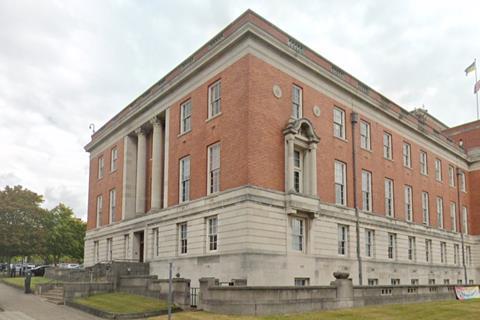A law centre which helped hundreds of people struggling with debt last year and is braced for a further surge in demand faced losing funding that would have drastically reduced the number of vulnerable people it could see, its annual report has revealed.
Derbyshire Law Centre's report for the 2021-22 financial year states that the centre supported 672 clients in debt, up 9% on the previous year.
‘The recent rises in mortgage interest rates have been of particular concern to homeowners, and in many cases, where payment arrangements have been in place successfully for years, they have now become unaffordable,' the report says. 'The impact of the pandemic has also hit more this year as long or short term holds on debt recovery have come to an end. We have also found that people have struggled to keep on top of their household bills, having been in and out of work more frequently.'
The law centre continued to work ‘holistically’ with colleagues in the homeless prevention team and housing unit. However, morale plummeted when the Money and Pensions Service, a government-sponsored body and the largest single funder of debt advice provision in England, embarked on a recommissioning exercise.

The report says: ‘Morale was low towards the end of last year - it looked as if the Money & Pension Service re-commissioning would drastically reduce the number of vulnerable people we were able to see, and we faced losing that funding all together, as it seemed geared towards national providers rather than local specialist agencies. Thankfully, due to a nationwide campaign and pressure through parliament (including a debate in Westminster Hall which we attended virtually), our part of the planned recommissioning was cancelled and we continue to work under our current contract for the time being.’
A case study reveals that one of the centre’s clients, 'Margaret', overwhelmed by debt, stopped opening letters and emails.
‘She was at risk of bailiff action for unpaid council tax. She told us she was at rock bottom and didn’t know where to turn,’ the law centre said. ‘We unravelled all of Margaret’s different creditors, went through her income and outgoings, and worked out an affordable payment plan, making sure that Margaret started to pay her "priority" debts such as rent, council tax, gas, electric and water first, and then splitting the rest of the money she had left evenly between her ‘non-priority’ creditors. Margaret was so relieved to have a plan she could stick to, and knows that if her income goes down, all she needs to do is get back in touch for help in reviewing her plan.’
Advisers are now ‘bracing ourselves’ for a further increase in people seeking help with energy debt ‘which is of grave concern’.



























No comments yet